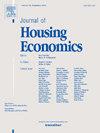Labor supply response to home value shocks: Evidence from Japan
IF 2.4
3区 经济学
Q3 ECONOMICS
引用次数: 0
Abstract
This paper examines the extent to which the labor supply of homeowners aged 40 years or over responds to unanticipated shocks to home values in Japan. Our findings suggest that only older homeowners respond to home value shocks. While older women strive to remain in the labor force, they tend to reduce their hours worked. Specifically, we find that an unanticipated one standard deviation increase in home value leads to a 5.2% reduction in hours worked per week relative to their average. Among older men, a small proportion choose to exit the labor force, while others reduce their hours worked without leaving their job. Specifically, an unanticipated one standard deviation increase in home value leads to a decrease in the likelihood of labor force participation by 4.8% and a reduction in hours worked per week of 9.2%, both relative to their average. We also find that women respond to home value shocks at a younger age than men. Women decrease their hours worked per week from the age of 55, while men start to reduce theirs from the age of 65. The small and late response to a home value shock among older homeowners may reflect the peculiarities of Japan’s housing and labor markets.
劳动力供给对房价冲击的反应:来自日本的证据
本文考察了日本40岁或以上的房主的劳动力供给对房屋价值意外冲击的反应程度。我们的研究结果表明,只有年龄较大的房主才会对房屋价值冲击做出反应。虽然老年妇女努力留在劳动力市场,但她们往往会减少工作时间。具体来说,我们发现房屋价值的一个意料之外的标准差增加导致每周工作时间相对于他们的平均值减少5.2%。在老年男性中,一小部分人选择退出劳动力市场,而其他人则在不离开工作的情况下减少工作时间。具体来说,与平均水平相比,房屋价值意外增加一个标准差会导致劳动力参与的可能性下降4.8%,每周工作时间减少9.2%。我们还发现,女性对房价冲击的反应比男性更早。女性从55岁开始每周工作时间减少,而男性从65岁开始每周工作时间减少。老年房主对房价冲击的反应迟缓,或许反映了日本住房和劳动力市场的特殊性。
本文章由计算机程序翻译,如有差异,请以英文原文为准。
求助全文
约1分钟内获得全文
求助全文
来源期刊

Journal of Housing Economics
Multiple-
CiteScore
3.30
自引率
4.20%
发文量
35
期刊介绍:
The Journal of Housing Economics provides a focal point for the publication of economic research related to housing and encourages papers that bring to bear careful analytical technique on important housing-related questions. The journal covers the broad spectrum of topics and approaches that constitute housing economics, including analysis of important public policy issues.
 求助内容:
求助内容: 应助结果提醒方式:
应助结果提醒方式:


